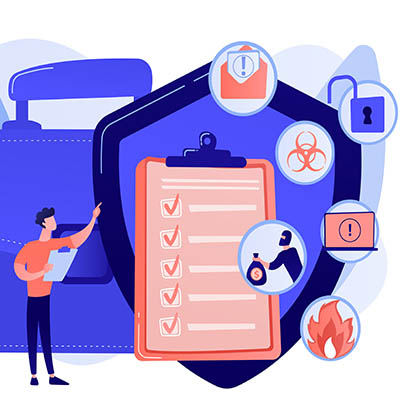Despite its undeniable value, data is incredibly fragile. The loss of critical information can spell disaster for a company, making data backup a paramount concern. In this article, we’ll explore why data backup is so important for businesses and why it should be at the forefront of every organization’s IT strategy.
Businesses have a lot of troubles to manage, one of which is their technology breaking down and interrupting their operations. You have options to ensure these circumstances do not influence your operations to the degree they once may have. Let’s discuss some of the ways you can address malfunctioning IT before it impacts your productivity.
How seriously does your business take data backup and disaster recovery? You might not be able to predict the future or what might occur, but you can at least prepare for it to mitigate the damage it could potentially bring about. Today, we want to share some of the best practices you can implement to combat even the worst disaster scenarios your organization might encounter.
Look, nobody likes picturing the worst-case scenario that could befall their business—even doing so might feel a bit like memorizing a divorce attorney’s number as you write your wedding vows. However, failing to have some strategy in place could very well lead to your business’ downfall. What does it take to properly plan and prepare for the possibility of a disaster, and the associated recovery you’ll have to undergo?
Business continuity is difficult to talk about for some business owners, specifically because no one likes to talk about the worst case scenario. What would you do if your business were to suddenly go through a disaster? Do you have a plan in place? If not, let’s talk about that. Here are some aspects of business continuity that you must consider. Remember; your company’s future depends on it!
Much is made about business continuity planning, but there is a knowledge deficit about what exactly business continuity planning entails. Today, we will talk about the basics of the business continuity plan (BCP) and how today’s most successful businesses go about reading their contingency plans.
Everyone from Wall Street to Main Street is feeling the effects of the COVID-19 outbreak. As a result, many businesses have had to enact their disaster recovery strategy to ensure that their business remains on solid footing during this dark time.
Each March 31st, we like to observe World Backup Day, where we educate people about the benefits of having a comprehensive backup plan in place. This year, with tens of thousands of people being affected by Coronavirus, business has ground to a halt in large portions of the world. Today, we are going to look at the business continuity strategy and how, in times like these, you’ll be glad you have your data backed up.
It’s never an easy thing to talk about, but it does need to be talked about. If one of your key employees were to pass away, how would it affect your business? How do you prepare for this type of inevitability?
Businesses generate and collect a huge amount of data – some of it, practically useless, and some, critical to your business and its operations. It is this latter group that makes it so important that you have a comprehensive backup plan ready to go.










